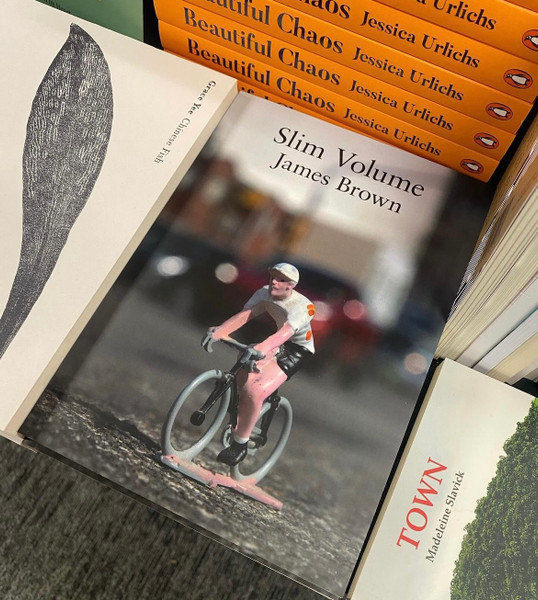'Ugh . . . poetry.' Launching Slim Volume by James Brown
Posted by Ashleigh Young on 27th Jul 2024
On Wednesday 17 July at Unity Books Wellington, we coaxed James Brown into the limelight to launch his eighth poetry collection: Slim Volume. Thank you to Unity Books, to the poets who also read some work – Morgan Bach, Nick Ascroft and Ashleigh Young – and thanks to everyone who came along, especially James. We are big James Brown fans here and a new book is always cause for celebration.
Nick Ascroft delivered the following rousing speech.
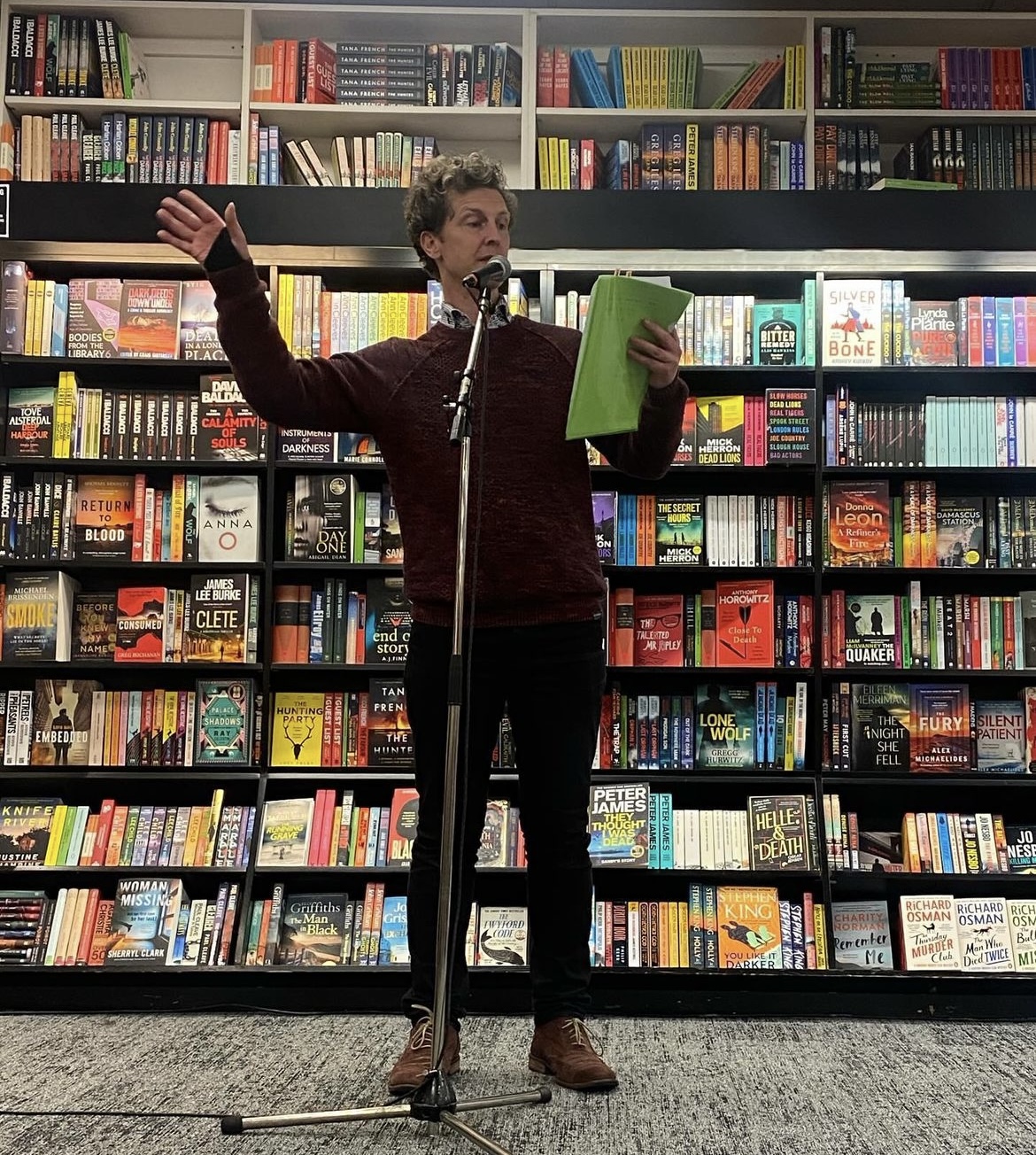
Nick Ascroft launching
I saw a cartoon the other day. A philosopher at a podium goes: ‘I’m not saying that we should destroy the planet. I’m saying that we can’t call it sad if we did, since sadness exists only in the human mind.’ And a caption beneath says, and it’s important to point out this isn’t funny, ‘They stopped inviting philosophers to environmental conferences.’ I like a joke. I like a joke about philosophy even, which is on me, but I pulled a face at this.
You might pick holes in the ideas of sadness existing only in human minds and why this might mean you couldn’t call something sad, if you were a human, and the thought originated from your human mind. But the point remains that banning philosophy from environmentalism is nuts. If you can’t consider the meaninglessness of human morality from the supra-human perspective, you know, set against cosmos timescales and the small lifetimes of planets, then your environmentalism is dancing on eggshells.
Now I say this to deflect from the fact we are launching James Brown’s book Slim Volume here. James doesn’t crave the spotlight, and he will, like many poets, and many spiders, scuttle behind the settee if the spotlight hits him. So I’m launching just at the edges here, and creeping the spotlight closer. Hang in there a sec.
My point though is: invite the philosophers to the conferences. Thinkers. Thinkers who are digging into the meaning of things and the truths and lies behind what we hold self-evident or holy. Get them on the Doodle poll and fit their calendars around the projected conference dates. Send the philosophers. But poets? No. Don’t send the poets. Don’t send the poets anywhere. What are we learning? What are we getting? Don’t send them to Antarctica. Don’t send them to Menton.
There’s the 1997 Jodie Foster film Contact after the Carl Sagan book. You remember this. She’s a scientist who is suddenly being transported through space in some interstellar wormhole subway with pretty lights and trippy effects, and she says, breathless at the wonder of it all: ‘They should’ve sent a poet.’
No. And here’s what I think the mistaken idea is. The poet will express the wonder through elegant and evocative verse? They’ll get to the truth you couldn’t articulate with your mumbled grunts? This is a myth about poetry. Have you read any poetry? No. The wonder is inexpressible. Good poetry knows this. A poet in Jodie Foster’s place might try into their dictation app: ‘The light doth seem to smoke and trickle like an artichoke in pickle.’ <Taps chest> Especially a minor poet. … And I look around the room … I like the term ‘minor poet’. It’s used as a dismissal. ‘Not one of the big names.’ (James is thinking, where are you going with this?) What I mean is there is an appropriate humility in the term.
Poetry is not grandiose. There is something ultimately
impotent about poetry. Briefly serious, we’ve all read some great Palestinian
poems in the last months, and to my mind, some of the power of those poems, and
the horror of those poems, is in the powerlessness. It’s fitting of poetry.
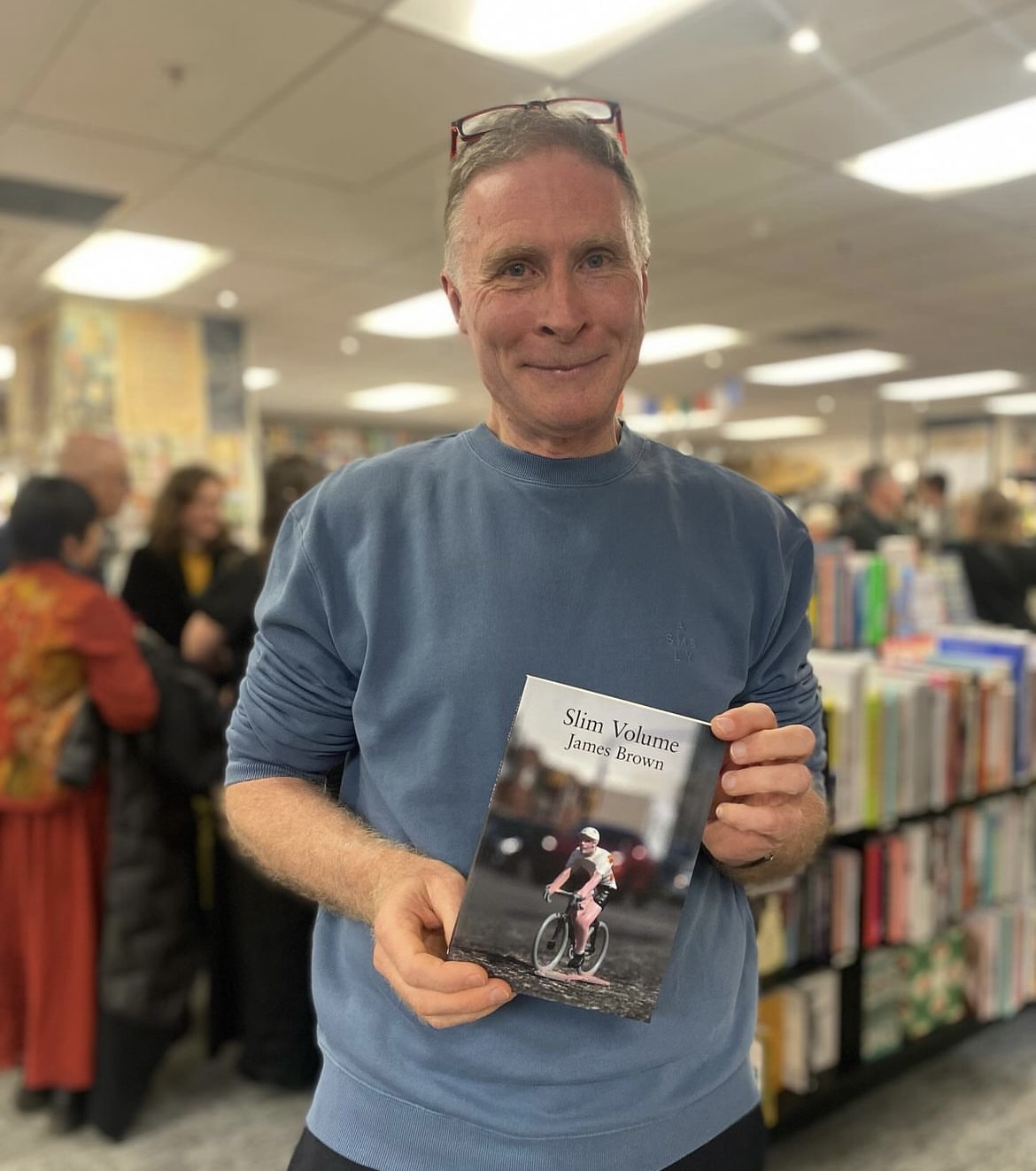
James Brown
James Brown’s poetry has a humility. The man himself I hope suffers none of this. But the poems know their place. They don’t outstay their welcome. They know to cut themselves down if they get too lofty or to apologise. There’s some great undercuts and intakes of breath throughout:
‘The truth – who can bear it?’
‘Like much of life – it was briefly fascinating.’
‘I’m sorry. It’s really tangled.’
‘Our lives had entered the post-fabulous.’
‘Without others how do you know you have won?’
And a great self-description, referring in the poem to rowing in his youth, but I am hoicking out of context here: ‘Nothing flashy, but I always showed up.’
James Brown can be flashy. But the non-flashy is more impressive and enjoyable. Poems some guy on a bike might yell at you as they zing by. Though he keeps his diction unflowery, communicative, intelligible, the lines are always considered. They are pretty in their slim arrangements and at times even traditionally poetic in a way Jodie Foster might appreciate:
‘At night, snow knits its mute blanket.’
A lot of short poems here. What an insight, Nick. Incredibly short, some of them. Abrupt poems! But I applaud this. It’s hard to write a good short poem that isn’t too slim, too skeletal, that has enough heft still to work the pedals. I’ll read you a quick one:
The Crisis Meeting
I completely agree with everything you are saying
but we also need to be mindful that
outside of this
tiny room
almost no one else
on the face of the big blue Earth
gives a fat fuck what we decide to do.
I was in that meeting today.
There is also a longer poem that is the best thing in the book. Called ‘Amen’. It’s almost too good, too slick. It might win a prize and no poem should win a prize. But again it is carried by a lack of grandiosity or big message. It’s about the terminology previously used where women were erased and everything was about men: ‘Men of law, of letters, of consequence, of few words.’ It goes on like this, for pages and in landscape so you have to tip the book around. Other than it being a well-paced and wonderful read what is most impressive is that the subject could so easily fall flat. A lot of room for missteps and a tin ear. Either you seem nostalgic for patriarchal ubiquity or you are self-congratulatory. Instead it feels a poem that has found its time. These man-words are out of vogue, and we can look at them with almost cool heads. A kind of historical lexicography. There’s still some sting in a few but the poem does well to be playful and to undercut without moralising. The pitch – ‘slick’ was unkind – the pitch is perfect. I don’t know who else could’ve written it. Perhaps only James Brown is foolish enough to have tried.
James was sent to an environmental conference, like the nihilist philosopher of the cartoon. Well, an environmental-themed poetry reading. Like that cartoon guy, he was well off-brief and read the poem on page 51 with the great moment: ‘What if your penis has diabetes? What if your diabetes has a penis?’
Do not send a poet.
James Brown’s book is … ugh … poetry. But I think
you’ll like it. I think you should read it.
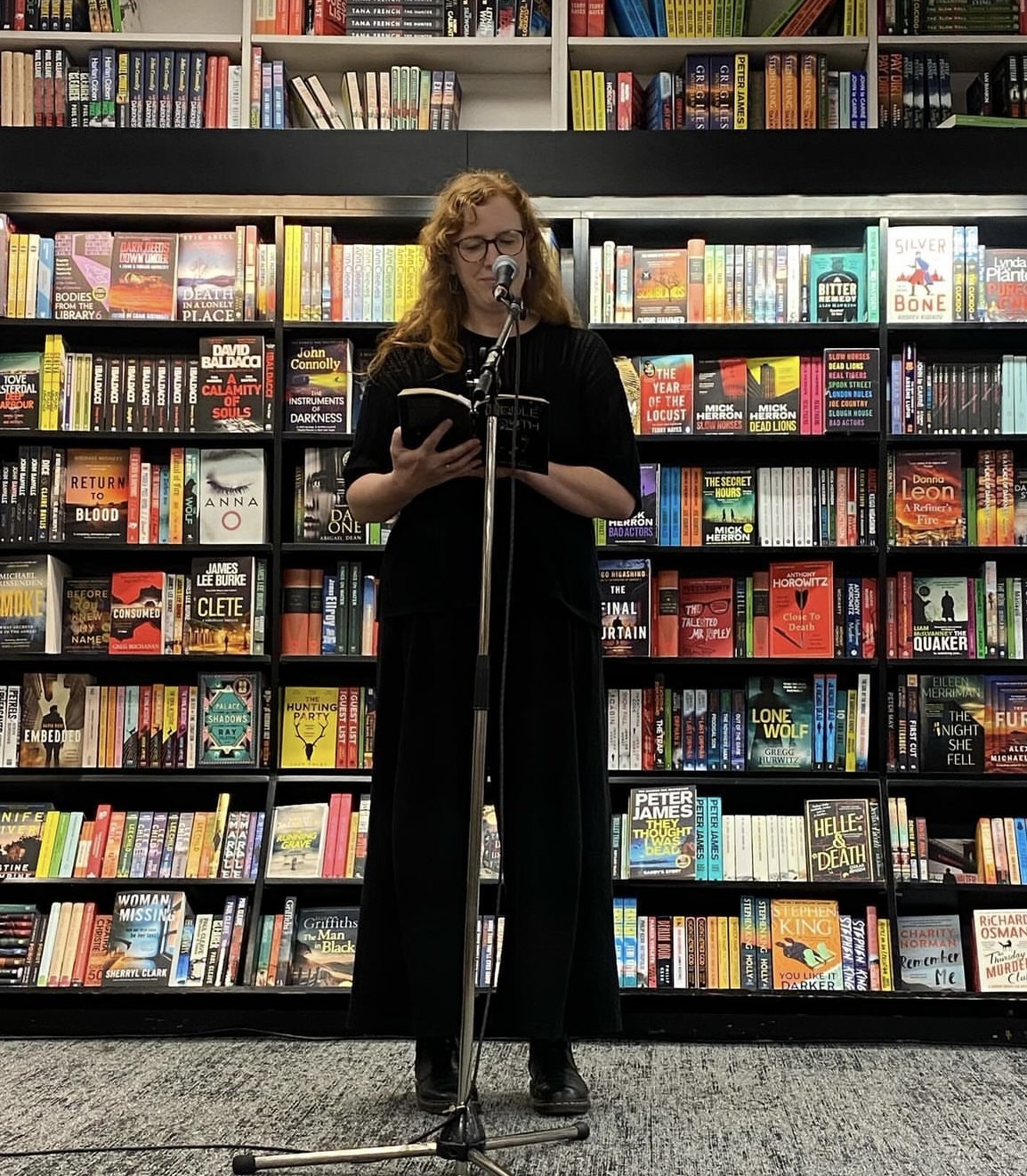
Morgan Bach reads
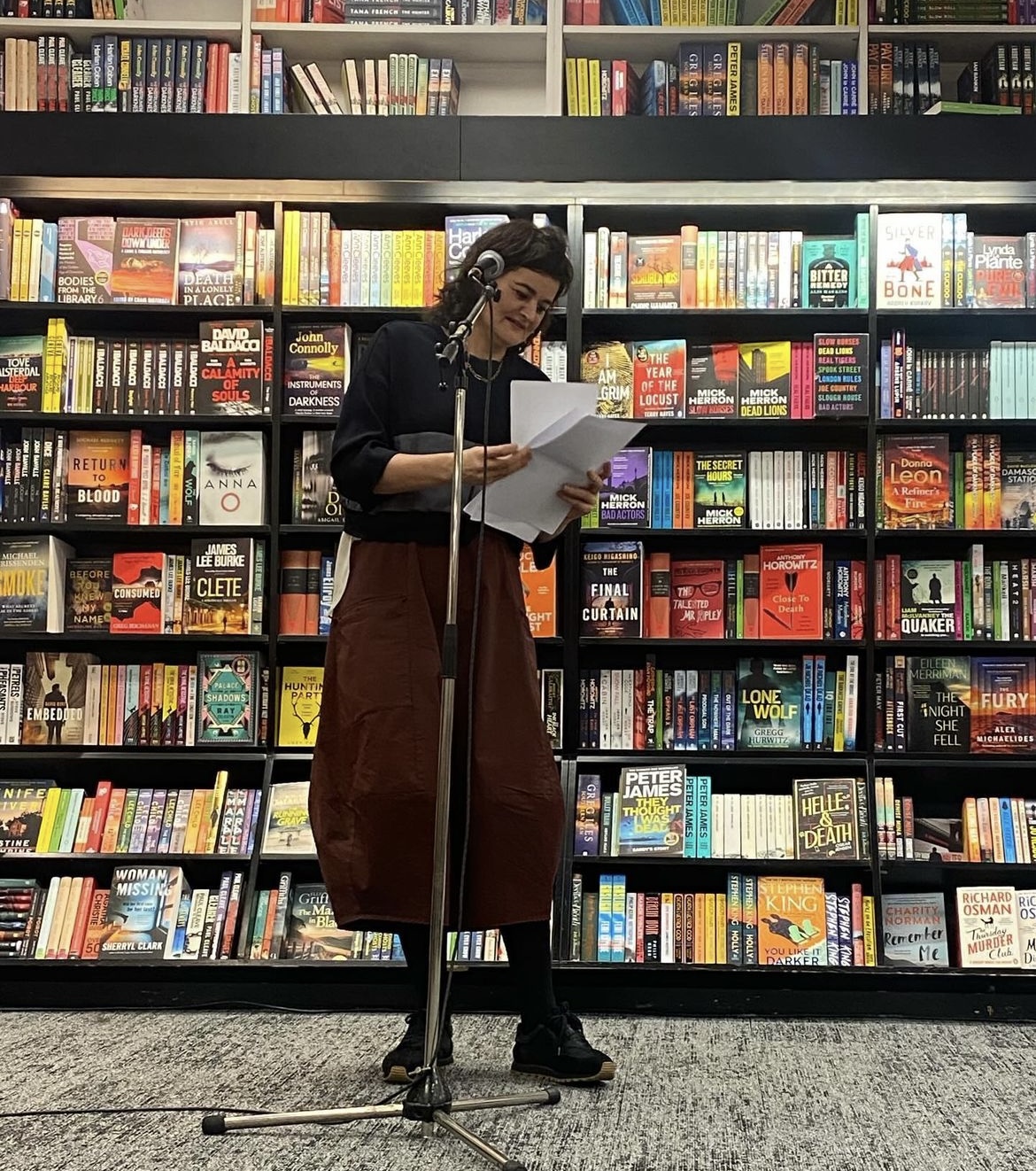
Ashleigh Young reads
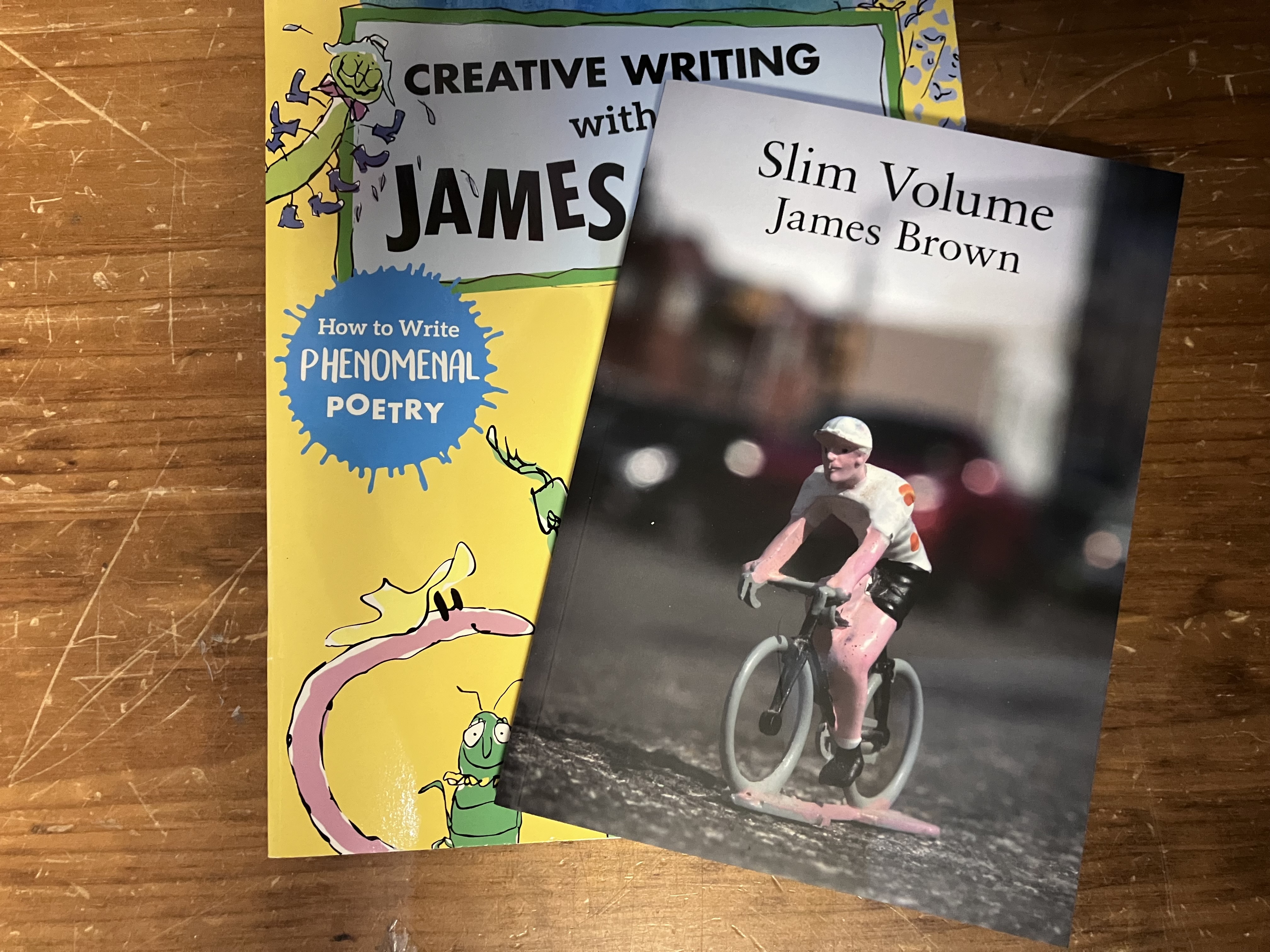
Slim Volume (paperback, RRP$25) is out now and is available at Unity Books, Schrödinger's Books and all other good bookshops, and here on our website.

